Plot
Efisio Mulas is a meek laborer who lives with occasional work, especially in Don Leandro Sanna's salon, and rounds up the slim balance by betting with colleagues in strength with the game "head against head". In the village the Sanna and Porcu families' conflict has lasted over a century.
The normality of the events is broken by the release, for the amnesty wanted by the pope, of the beautiful Domenicangela Piras, the turbulent girlfriend of Efisio convicted for having hurt him with a billhook. At the same time the old man of honor, Agostino Sanna, is about to instigate his nephew Don Leandro to kill Alvaro Porcu. Don Leandro does not intend to support his uncle, so it takes time, insinuating that Alvaro Porcu has been hiding in Supramonte for fear of him.
Efisio marries Domenicangela having, finally, obtained the consent of her father required by the priest, the fugitive don Liberato. Meanwhile, Agostino Sanna decides to haunt down Alvaro to kill him, but succumbs. Leandro, walking to stop his uncle, attends to his death, and, disgusted, to avoid the continuation of the vendetta, decides to move into his estate, seeking for peace.
Efisio needs money and decides to steal sheep from the estate, but the watchdog pulls him out of his pants.
During the wedding celebrations of Efisio and Domenicangela, she gets rid of those pants, throwing them in the street. The marshal of the carabinieri find them, and, having seen the bites of the dog and the blood left on them, immediately arrests him. Efisio runs away and decides to flee in Milan.
Meanwhile, a new event is about to reopen the vendetta: Giovanni Sanna, Leandro's younger brother, challenges on public square Alvaro Porcu to take revenge for Uncle Agostino, hitting his face with a glove. Don Leandro is furious, because at this point he is under threat from the revenge of Egidio Porcu, brother of Alvaro and the last surviving adult male of the family. The family risks to remain with no males. He proposes then an exchange to Efisio: he will return to Sardinia to kill Egidio Porcu, and Don Leandro, in return, will witness his innocence in the murder of Uncle Agostino. Efisio agrees, but he is incapable of killing, and, when he is back in Sardinia decides to meet his wife only. At the same time Egidio Porcu is killed by an unknown hand.
At Efisio's trial, he is declared not guilty and then he can return in his village as a free man, but he finds a hostile atmosphere. Dominicangela, in fact, is pregnant and everyone is questioning the identity of the father. For Efisio there is then a tragic dilemma: to reveal that he is the father of the about to be born (and confess his presence in the village on the day of the murder of Egidio Porcu) or undergo social stigmatization.
When Don Leandro turns his back on him, Efisio turns to Don Liberato, who makes him understanding the name of the true assassin of Egidio Porcu. Efisio then attempts to involve a young carabiniere to make him witness the man's confession, and, during a country party, tries to tease him. But precisely at the crucial moment, the assassin of Egidio Porcu expresses itself in Sardinian. The carabiniere does not understand a word, and immediately after, the murder is killed by a rival. Efisio has no option than killing the innocent Domenicangela and end up in jail. Only in this way it is possible to end this endless conflict between families and regain the respect of the people of his village.
The film ends with the sad imprisonment of Efisio with the people of his village paying him the so sought-after respect.

La forza del destino is an Italian opera by Giuseppe Verdi. The libretto was written by Francesco Maria Piave based on a Spanish drama, Don Álvaro o la fuerza del sino (1835), by Ángel de Saavedra, 3rd Duke of Rivas, with a scene adapted from Friedrich Schiller's Wallensteins Lager. It was first performed in the Bolshoi Kamenny Theatre of Saint Petersburg, Russia, on 29 November 1862 O.S..

Pasión de Gavilanes is a Colombian telenovela written by Julio Jiménez. It is produced by RTI Colombia in conjunction with the Telemundo network and with the participation of Caracol TV company. The telenovela is based on the 1994 telenovela Las aguas mansas, also written by Jiménez and produced by RTI. It premiered on Telemundo on 21 October 2003, while in Colombia it premiered on Caracol TV.
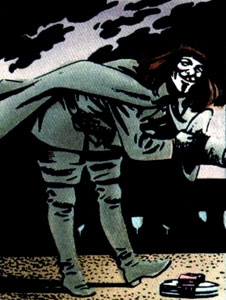
V is the title character of the comic book series V for Vendetta, created by Alan Moore and David Lloyd. He is a mysterious anarchist, vigilante, and freedom fighter who is easily recognizable by his Guy Fawkes mask, long hair and dark clothing. He strives to topple a totalitarian regime of a dystopian United Kingdom through acts of heroism. According to Moore, he was designed to be morally ambiguous, so that readers could decide for themselves whether he was a hero fighting for a cause or simply insane.
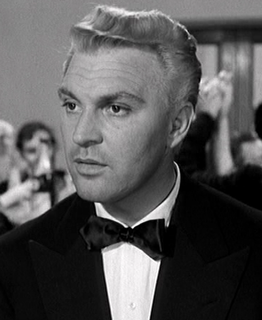
Franco Fabrizi was an Italian actor.
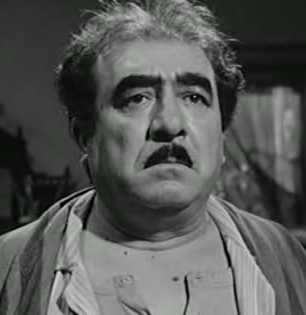
Rosario "Saro" Urzì was an Italian actor. He is best known for his roles in the films In the Name of the Law (1949), The Railroad Man (1956), Seduced and Abandoned (1964), which earned him a Cannes Film Festival Award for Best Actor, and The Godfather (1972).

XXY is a 2007 Argentine drama film written and directed by Lucía Puenzo and starring Ricardo Darín, Valeria Bertuccelli, Inés Efron and Martín Piroyansky. The film tells the story of a 15-year-old intersex person, the way her family copes with her condition and the ultimate decision that she must eventually make as she struggles to define her own gender identity within a society that expects certain behaviors from every individual.
Verano del '98 was an Argentine telenovela intended for teenagers, broadcast by Telefe from January 26, 1998 until November 24, 2000. Allegedly planned as way to cover a programming gap for the summer of 1998, it became such a hit that it ended lasting three consecutive seasons. After the series aired Telefe came under fire as it became apparent that Verano del '98 was a thinly veiled copy of the popular American teen drama Dawson's Creek, which also started airing around the same time. Gustavo Yankelevich, Telefe's chief artistic director, admitted having attended an early screening of Dawson's Creek in 1997 but thought Sony had lost interest in the project and decided to use it as inspiration when developing Verano del '98. Sony and Telefe settled out of court.

Gomorrah is a 2008 Italian crime film directed by Matteo Garrone, based on the non-fiction book of the same name by Roberto Saviano, who also collaborated in the screenplay. It deals with the Casalesi clan, a crime syndicate within the Camorra — a traditional criminal organization based in Naples and Caserta, in the southern Italian region of Campania.

El noveno mandamiento is a Mexican telenovela produced by Lucero Suárez for Televisa in 2001.

Man, Pride and Vengeance (Italian: L'uomo, l'orgoglio, la vendetta, German: Mit Django kam der Tod is a 1967 Spaghetti Western film written and directed by Luigi Bazzoni and starring Franco Nero, Tina Aumont, and Klaus Kinski. It is a Western film adaptation of the novella Carmen by Prosper Mérimée, and is one of the few Westerns not only filmed, but also set in Europe.
Montecristo is a Spanish-language telenovela that aired on TV Azteca. It premiered on August 14, 2006. The final original episode aired April 27, 2007. It is based on the 2006 Argentinian telenovela of the same name, with Rita Fusaro, one of the producer of the original version, serving as the producer in this version.
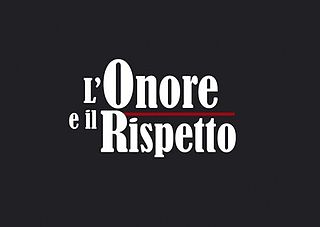
L'onore e il Rispetto is an Italian crime drama broadcast on Canale 5. It is composed of four seasons of six episodes each: the first aired in 2006, the second in 2009 and the third in 2012. The fourth season, initially scheduled for the first months of the year, was broadcast from 1 September 2015. Even before the airing of the said season, Mediaset renewed the series for a fifth season.

Benjamin Piercy was a civil engineer. He developed railway lines in Wales, Sardinia (Italy), France and India and is also well known as an agrarian businessman and entrepreneur.

The literature of Sardinia is the literary production of Sardinian authors, as well as the literary production generally referring to Sardinia as argument, written in various languages.
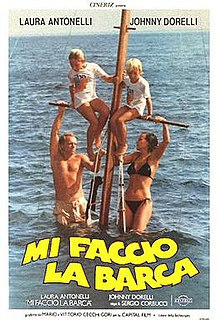
I'm Getting a Yacht is a 1980 Italian comedy film directed by Sergio Corbucci.
Broken Silence is a 2001 Spanish film that shows life in a small town after the Spanish Civil War in the years 1944-1948. The director is Montxo Armendáriz, and the main actors are Lucía Jiménez and Juan Diego Botto.
Un delitto d'onore is a novel written by Giovanni Arpino in 1960, in which the writer denounces moral and social prejudices linked to honour killing, once used as extenuating circumstance in Italian law.

Letter from Naples is a 1954 Italian musical melodrama film directed by Giorgio Pastina and starring Giacomo Rondinella, Virna Lisi and Otello Toso.

Harold Theopolis "Harry" Osborn is a fictional character in Sam Raimi's Spider-Man film series. Based on the comic book character of the same name created by Stan Lee and Steve Ditko, he is portrayed by James Franco. In the films, Harry is Peter Parker's best friend and a rival for Mary Jane Watson's affections, though the three are friends for much of the series. Harry and Peter's friendship sours after the death of Harry's father Norman, who was the villainous Green Goblin, which he blames on Peter's alter-ego Spider-Man. Upon finding out his best friend is actually the web-slinger, Harry, despite being reluctant at first, vows revenge on him, taking on the New Goblin mantle and utilizing the technology his father left behind.















